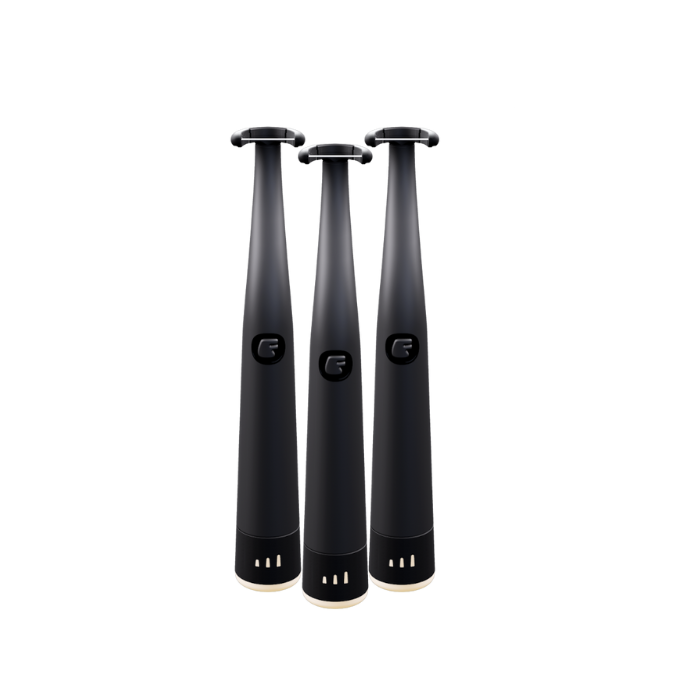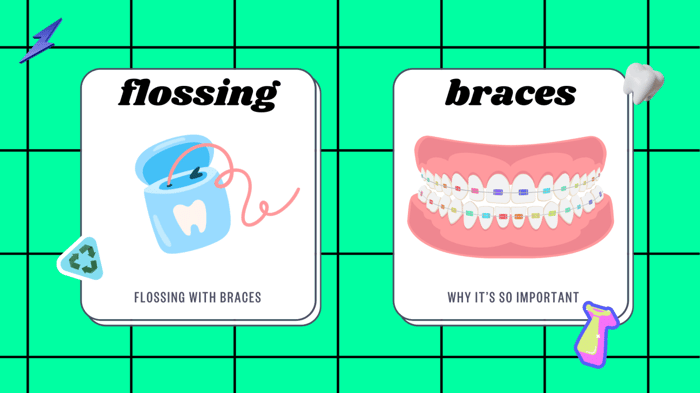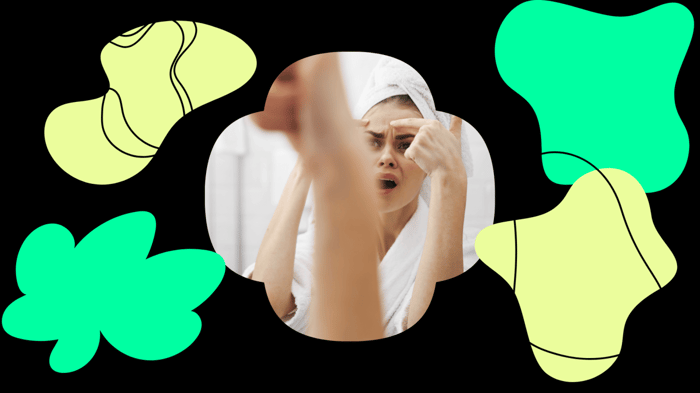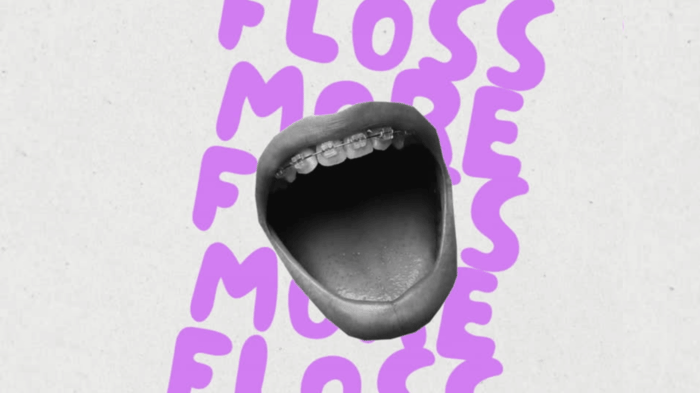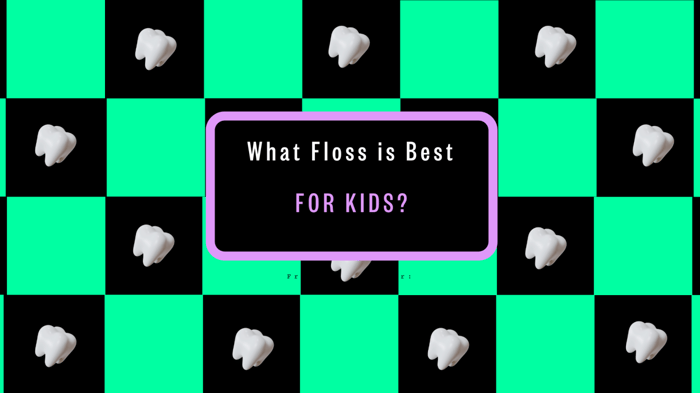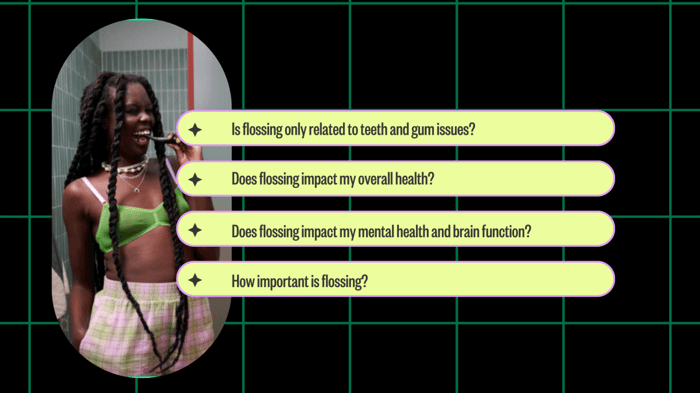What happens when you don't floss with braces? Ignoring flossing duties when wearing braces opens the mouth up to discomfort, smelly breath, and a not-so-pleasant smile. Food stuck between wires and brackets leads to the perfect playground for harmful bacteria and plaque. These tiny invaders can also cause gum irritation and white spots on teeth, ruining that bright smile you're working towards with those braces.
Not flossing regularly while wearing braces can lead to a buildup of plaque and food particles, increasing the risk of cavities, gum disease, and white spots on your teeth when the braces are removed. It's essential to maintain proper oral hygiene, including flossing, to prevent these issues and keep your teeth healthy during orthodontic treatment.
Immediate Results of Not Flossing with Braces
When you have braces, it's like an obstacle course for your teeth. The wires and brackets create little nooks and crannies where food easily gets trapped. If you neglect to floss, bits of food linger in these spaces, causing various problems.
First off, there's the discomfort. Imagine having a piece of popcorn stuck in your teeth that you just can't get out—it's annoying and distracting. Now picture that feeling multiplied many times over because food is caught in your braces. It can poke and rub against your gums or the inside of your cheeks, resulting in irritation and even sores.
Potential Risks of Neglecting Flossing with Braces
Looking for more detailed information on what happens when you don't floss with braces? numerous problems can occur:
- Bad breath: Trapped food particles provide a feast for bacteria, which release foul-smelling gases as they feed. This can cause bad breath or halitosis.
- Unsightly appearance: Food caught in your braces much easier than it can when you don't have braces and can be seen while you smile or talk
- Bacterial growth: The warm and moist environment created by trapped food is perfect for bacteria to thrive and multiply. This raises the risk of developing plaque buildup, leading to tooth decay and gum disease if not properly addressed.
It's not just about the discomfort or aesthetics—failing to floss allows plaque to build up. Plaque is a sticky film made of bacteria that clings to your teeth and braces, leading to cavities, gum disease, and other oral health issues if not removed regularly. When you have braces, it's even more important as plaque has more places to hide and wreak havoc on your oral health.
Understanding these immediate consequences emphasizes the importance of consistent flossing when wearing braces. By doing so, you can prevent discomfort, maintain fresh breath, uphold a pleasing appearance, and most importantly, safeguard your oral health in the long run.
Plaque and Bacteria Buildup: A Closer Look
When wearing braces, maintaining thorough dental hygiene becomes slightly more challenging. The brackets and wires create additional spaces for food particles to get stuck, potentially attracting harmful bacteria. These bacteria can then lead to the formation of plaque, a sticky film that adheres to the teeth.
Plaque contains bacteria that produce acids capable of eroding tooth enamel, resulting in cavities and gum disease. As plaque accumulates around braces, it becomes increasingly difficult to remove through regular brushing alone.
The Dangers of Plaque and Bacteria
Plaque that remains on the teeth can cause various issues:
- Bad Breath: The bacteria in plaque release foul-smelling gases, leading to bad breath or halitosis.
- Gum Irritation: Plaque buildup can lead to gum irritation, making them red, swollen, and prone to bleeding.
- Decalcification: The acids produced by bacteria in plaque can cause decalcification—white spots on the teeth—which indicate weakening enamel.
In essence, plaque and bacteria buildup around braces can have immediate and long-term consequences if not addressed promptly.
Imagine wearing a beautifully designed necklace—it sparkles and shines. But over time, if you don't clean it properly, little bits of dirt will accumulate within those intricate links, dulling its appearance. Similarly, without proper care, braces provide numerous nooks and crannies for plaque to hang out on and wreak havoc on your oral health.
It's important to recognize that plaque removal with braces requires a little extra effort compared to when you didn't have them. Failing to adequately address this issue can result in unfavorable oral health outcomes.
Having understood the specific dangers of plaque and bacteria buildup when wearing braces, let's embark on exploring some effective methods for managing this challenge and maintaining good oral hygiene.
Long-Term Risks of Ignoring Flossing
In the long term, what happens when you don't floss with braces? Failing to floss when you have braces can lead to a host of long-term consequences, extending far beyond just your time wearing braces. It's essential to recognize the potential impacts this negligence can have on your oral health and understand that the inconvenience of flossing is minuscule compared to the potential damage it could prevent. Let's take a deeper look at these consequences.
Development of Gum Disease
When braces are present, they create additional spaces for food particles and plaque to get trapped, particularly along the gumline where flossing is crucial. Without proper flossing, bacteria-laden plaque accumulates and creates an environment ripe for gum disease. This can lead to gingivitis or even advanced periodontal disease if left unchecked.
Regularly flossing not only removes plaque but also prevents the inflammation and infection of gums, ultimately safeguarding against more serious complications down the line.
Increased Risk of Tooth Decay
The risk of tooth decay escalates significantly when braces hinder your ability to effectively clean between teeth. The nooks and crannies created by orthodontic appliances easily harbor food remnants and bacteria that conventional teeth brushing alone cannot remove. Over time, this can lead to demineralization, decay, or even cavities.
By establishing a diligent flossing routine, you actively combat the accumulation of damaging plaque and food particles in hard-to-reach areas and significantly reduce the likelihood of developing tooth decay or cavities.
Formation of Permanent Stains
Poor dental hygiene due to neglecting flossing while wearing braces can result in persistent stains on teeth. The areas around brackets may darken or become discolored due to the retention of food and bacterial build-up over time. In some cases, these stains can be challenging to remove even after braces have been removed, leaving a lasting aesthetic impact on your smile.
Flossing is integral to preserving your oral health, preventing irreversible damage, and ensuring positive long-term outcomes for your dental well-being - especially if you're wearing braces.
Understanding the critical role of flossing when you have braces opens the gateway to delving into another grave concern—Tooth Decay and Cavities: An Inevitable Result?
Tooth Decay and Cavities: An Inevitable Result?
Gum Health: The Silent Victim
Imagine this: just like a garden with roses, your gums need regular care to stay healthy. However, having braces can make this task tricky - bits of food easily get stuck between them and the wires. When you don't floss adequately, these bits turn into a comfortable home for bacteria, which can lead to red, swollen, and bleeding gums. Not only does this undermine the aesthetics of your smile, but it also poses significant risks to your overall oral health.
Gum health is often overlooked in the context of orthodontic treatment, despite being the foundation of good oral health. Inadequate flossing with braces can exacerbate existing gum issues and can lead to periodontal disease. The swollen and bleeding gums resulting from improper flossing are signs of gingivitis, an early stage of gum disease where the gums become inflamed due to excessive plaque buildup. This inflammation is a warning sign that your gums are not as healthy as they should be and require immediate attention.
Consider this: imagine small weeds growing in your rose garden. At first glance, they might seem harmless, but if left unattended, they have the potential to spread their roots and suffocate your beautiful roses. Similarly, when an adequate oral hygiene routine isn't upheld with braces, bacterial growth in the mouth can impact gum health profoundly if not addressed promptly.
Continued negligence can lead to a more advanced form of gum disease known as periodontitis. The progression from gingivitis to periodontitis can result in irreversible damage to the bones and tissues supporting the teeth. As a consequence, individuals may experience loosening or shifting of teeth, leading to potential tooth loss.
To maintain the integrity of your teeth during orthodontic treatment, it’s crucial to incorporate consistent and thorough flossing practices into your daily routine. By addressing gum health, you're taking proactive steps toward ensuring the longevity of your teeth and promoting overall well-being.
Now that we've explored "what happens when you don't floss with braces", let's move on to additional strategies for maintaining comprehensive oral health even with orthodontic appliances.
Caring for Braces: More than Just Flossing
When you have braces, it's important to look after them well. In addition to regular flossing, which is crucial in preventing food particles from getting trapped and causing plaque buildup between braces, other steps are essential for maintaining good oral health during orthodontic treatment.
Brushing your teeth after every meal, using interdental brushes, and incorporating oral irrigators into your daily oral hygiene routine will help keep your braces, teeth, and gums clean and healthy. Orthodontic treatment places extra demands on oral hygiene because it's easier for food to become trapped in the brackets and wires of your braces.
The Importance of Proper Brushing
It's crucial to brush your teeth after every meal and snack to prevent food particles from sticking to the wires or brackets more than they already do. Using a soft-bristled toothbrush or a power toothbrush will help reach those tricky spots and clean them effectively.
The Role of Interdental Brushes
Interdental brushes are small brushes designed specifically for cleaning between braces and wires where traditional toothbrushes can't reach. They are effective at removing plaque, food particles, and debris from these hard-to-reach areas.
Incorporating Oral Irrigators
Using an oral irrigator or water flosser can be helpful in cleaning around the brackets and wires of the braces as well. These devices use a stream of pulsating water to remove plaque and food particles from between the teeth, brackets, and wires.
Regular dental check-ups are also crucial while undergoing orthodontic treatment. The orthodontist can determine if there are any issues with your braces or if any areas require additional attention.
During check-ups, the orthodontist might recommend adjustments or provide advice on how to maintain excellent oral hygiene throughout your braces journey.
Taking these extra measures helps promote proper oral health while wearing braces. It's not just about keeping the braces clean; it's about maintaining healthy teeth and gums around them too.
Quick Tip: Dental wax is a lifesaver for those times when the wires are poking out uncomfortably against your cheeks or lips - make sure it’s nearby as part of your dental care kit!
Ensuring healthy oral hygiene practices alongside regular professional checks is key to maintaining optimal dental wellness while undergoing orthodontic treatment.
These additional care measures are pivotal in preserving not only the condition of the braces but also the overall health of your teeth, ensuring a favorable outcome once the orthodontic treatment is complete.
How does not flossing with braces affect oral hygiene?
Not flossing with braces can have serious consequences for oral hygiene. The presence of braces creates additional spaces for food particles and plaque to accumulate, increasing the risk of tooth decay and gum disease. According to the American Association of Orthodontists, individuals wearing braces are more susceptible to gingivitis than those without braces. Regular flossing is crucial in removing debris and maintaining proper oral hygiene while undergoing orthodontic treatment.
What are some effective alternatives for maintaining oral health if flossing is difficult with braces?
While flossing may be challenging with braces, there are effective alternatives to maintain oral health. Interdental brushes are small brushes that can clean between the wires and braces, reaching areas that traditional floss cannot. Water flossers can also be used to remove food particles and plaque. A study by the Journal of Clinical Orthodontics found that interdental brushes were as effective as regular floss in reducing plaque buildup for patients with braces.
Can not flossing with braces lead to tooth decay or cavities?
Absolutely! Not flossing with braces can lead to tooth decay and cavities. The brackets and wires make it harder to clean between teeth, trapping food particles and bacteria. Without regular flossing, plaque buildup increases, increasing the risk of tooth decay and cavities. According to a study by the American Association of Orthodontics, individuals who did not floss regularly during orthodontic treatment had a 40% higher chance of developing tooth decay compared to those who did floss. So don't forget to floss daily for a healthy smile!
What are the potential consequences of neglecting to floss while wearing braces?
Neglecting to floss while wearing braces can lead to several potential consequences. First, plaque buildup can occur more easily, increasing the risk of cavities and tooth decay. According to a study published in the Journal of Clinical Orthodontics, patients with braces who did not floss regularly had a 50% higher chance of developing cavities compared to those who practiced regular flossing. Second, not flossing can also contribute to gum inflammation and gingivitis, as food particles get trapped between the teeth and braces. These potential consequences highlight the importance of incorporating regular flossing into your oral hygiene routine while wearing braces.
Are there any specific dental issues that can arise from not flossing with braces?
Absolutely! Not flossing with braces can lead to a range of dental issues. The brackets and wires create spaces where food particles and plaque can easily get trapped, promoting the growth of harmful bacteria. This can result in gum inflammation, bad breath, tooth decay, and even permanent stains on the teeth. According to a study by the American Association of Orthodontists, patients who neglected flossing had a significantly higher risk of developing gingivitis and cavities compared to those who maintained good oral hygiene practices during orthodontic treatment.
Are you Getting Your Braces Off Soon!
🌟 Discover a Revolution in Oral Care! 🌟
Tired of traditional flossing? Experience the future with the Flaus Electric Flosser.
✨ Faster. Efficient. Effortless. ✨
Don't just read about it, make the switch today!
👉 Get Your Flaus Electric Flosser Starter Kit Now! 👈
Email us at support @ goflaus.com and tell us if you want an orthodontic head for an Electric Flosser so you can Flaus with braces!








